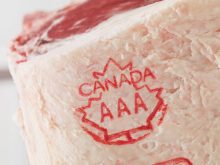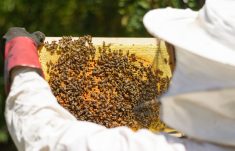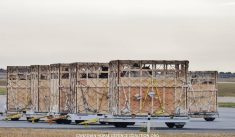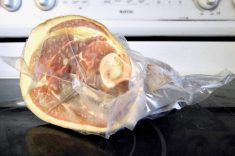Sustainability policies often double in the agricultural view as potential trade barriers, but according to a global forum seeking to balance trade and sustainability goals, it’s just as important to consider the opportunities.
“Rather than viewing sustainability requirements as potential trade barriers, policymakers should position them as opportunities to enhance market access and competitiveness,” read a new report from the Global Forum for Farm Policy and Innovation.
“This shift in perspective can drive the development of trade policies that actively support and incentivize sustainable agriculture.”
Read Also

Trade uncertainty, tariffs weigh on Canadian beef sector as market access shifts
Manitoba’s beef cattle producers heard more about the growing uncertainty they face as U.S. tariffs, and shifting trade opportunities, reshape their market.
It cautioned, however, that success will be predicated on convincing stakeholders to embrace common approaches.
Why it matters: Government and corporate agricultural policies are putting greater emphasis on sustainability than ever before.
Farm policy think tanks representing four major agricultural exporting regions formed the forum in 2022. They include the Canadian Agri-Food Policy Institute, the U.S.-based Farm Foundation, the Australian Farm Institute and the EU-based Forum for the Future of Agriculture. The group is committed to collaborate on a common set of principles that balance global trade and sustainability.
Its chief objective is to head off unintended consequences when nations unilaterally implement sustainability measures that potentially change the flow of trade.
The report, “Policy and Practice for Sustainable Agriculture and Trade” is based on a workshop held this year in Washington, D.C., which brought together participants from 17 countries, including government officials, industry representatives and trade policy experts.
“Participants acknowledged that poorly designed policies could lead to trade distortions or exacerbate existing issues,” the report says. “A key insight was that sustainability initiatives must be practical and aligned with farmers’ goals and local conditions.”
They also noted a need “for an outcome-based approach using clear definitions, principles, standards and science-based metrics to bridge global objectives with local realities to achieve this.”
While participants could agree that key indicators such as soil health, carbon measures, water usage and biodiversity were key benchmarks, they also acknowledged that precise outcomes for these indicators remain elusive.
“The discussions grappled with fundamental questions, including whose sustainability should be prioritized in trade agreements — the exporting country, the importing country, or global outcomes,” the report noted. “Participants also explored the tensions and trade-offs between the environmental, social and economic pillars of sustainability.”
In the end, participants called for trade policies related to sustainability to emphasize outcomes rather than the processes used to achieve them and to focus on commonly accepted benchmarks.
Participants also called for the development of a Sustainable Agriculture Trade Framework with clear definitions, science-based standards and guiding principles, which could increase international co-operation rather than foster increased polarization.
In addition, the report calls for greater investment in globally accepted metrics and data management around sustainability, a priority focus on supportive innovation and technology and a commitment to ensuring farmers are engaged in policy development.
















